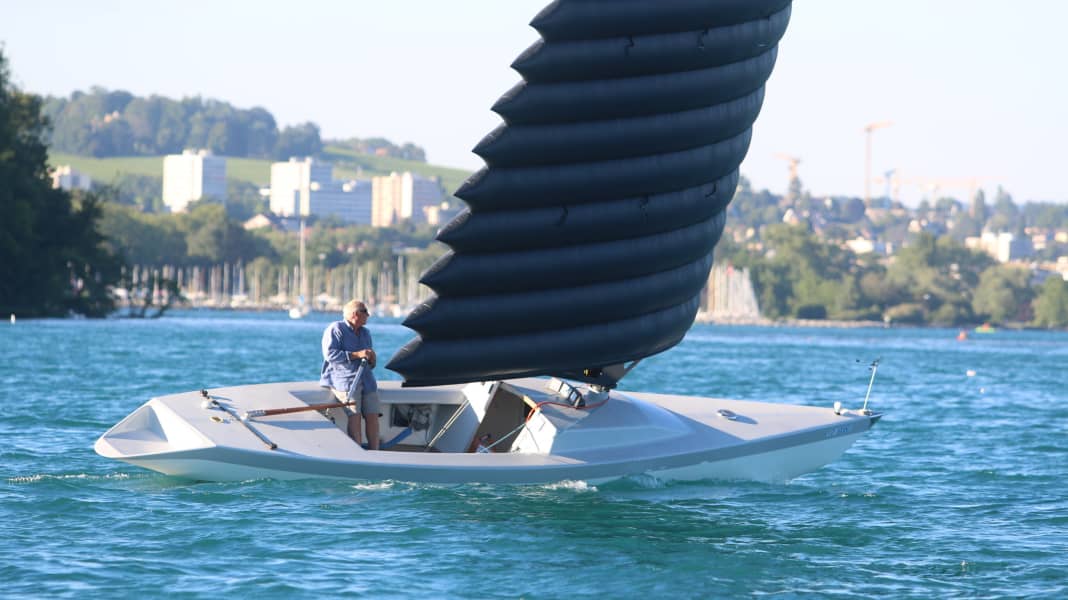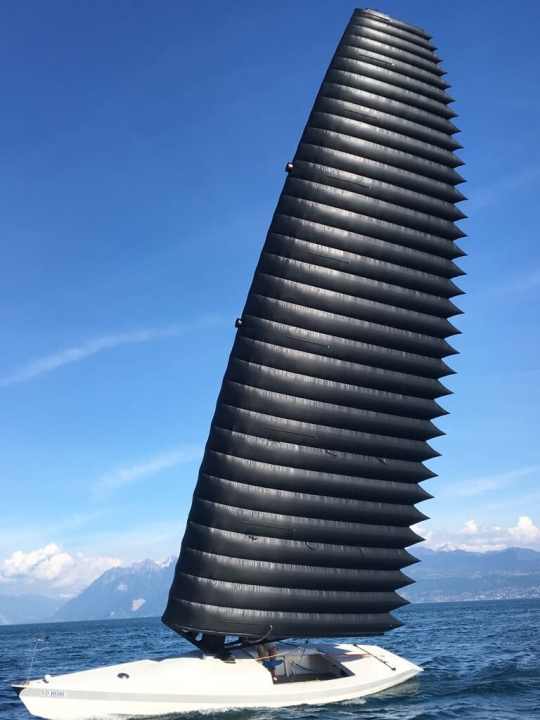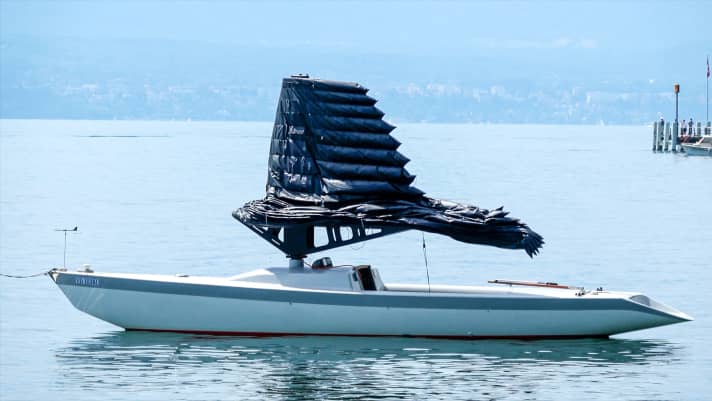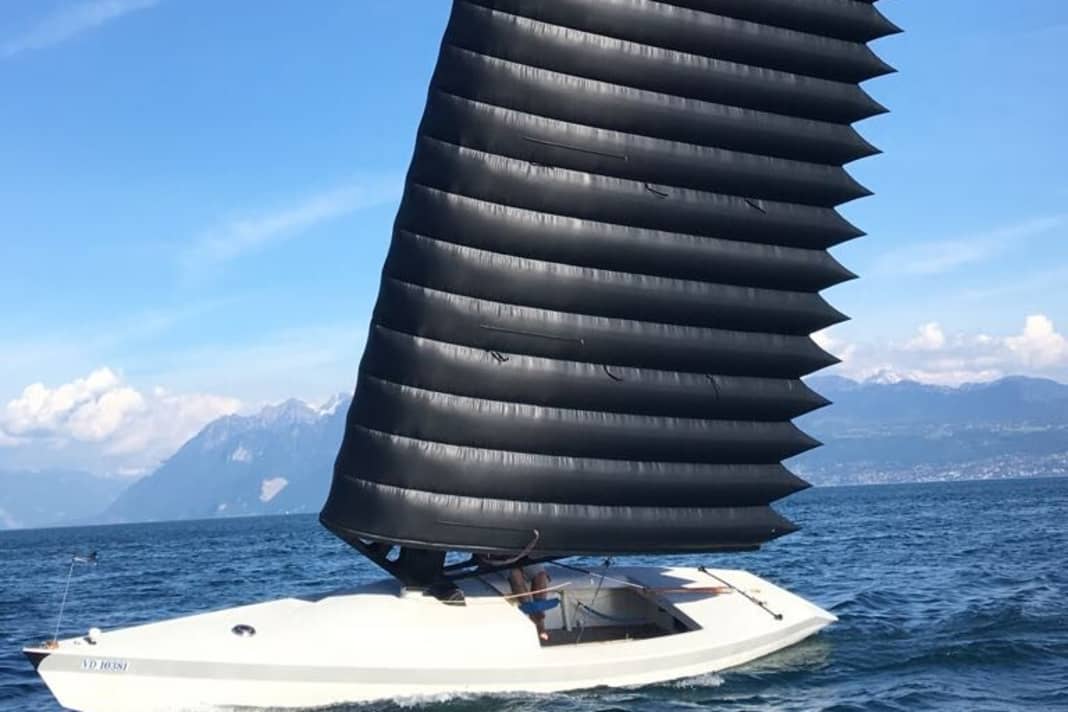
The innovative concept is essentially based on the functionality of paragliders or paragliders, in which air chambers arranged next to each other form a fixed profile. The IWS (Inflated Wing Sails) wing works in exactly the same way, only in this case the profile is vertical rather than horizontal. The wing is filled with air through scoops on its leading edge. Built-in fans also help to build up sufficient pressure inside the airfoil to stabilise the wing and create a flow.

The special feature of the IWS wing is its symmetrical design. Unlike many other adjustable and often two-piece wing rigs, such as those used in the 2017 America's Cup, the inflatable wing from Switzerland has an identical profile on both sides. The advantage of this is that the sail pressure point is located directly on the internal, load-bearing mast and therefore exactly in the aerodynamic centre of the wing. You don't have to be able to understand the physics of this, but it still works, as a whole series of Videos on the IWS website.
In concrete terms, this means that the free-standing wing, which can be rotated 360 degrees, does not need to be actively trimmed, either underway in changing wind conditions or when manoeuvring. Only a single mainsheet regulates the angle of attack of the wing to the wind. And: when jibing, the profile is simply swivelled round at the front - it really couldn't be easier. Incidentally, the inflatable profile is set and recovered at the touch of a button. The internal carbon fibre mast is divided into several sections and tapered at the top. The telescopic round profile is raised electrically and simultaneously stretches the membrane of the profile sail. The integrated fans take care of the rest.

The prototype of the IWS system has been installed on a 5.5 metre sail on Lake Geneva since the summer of 2017 and is already causing quite a stir within the innovative scene on the "Léman". The project is the brainchild of sailmaker Edouard Kessi and paragliding pioneer Laurent de Kalbermatten. The two are supported by aerodynamicist Stéphane Fauve from France.







Michael Good
Editor Test & Technology
